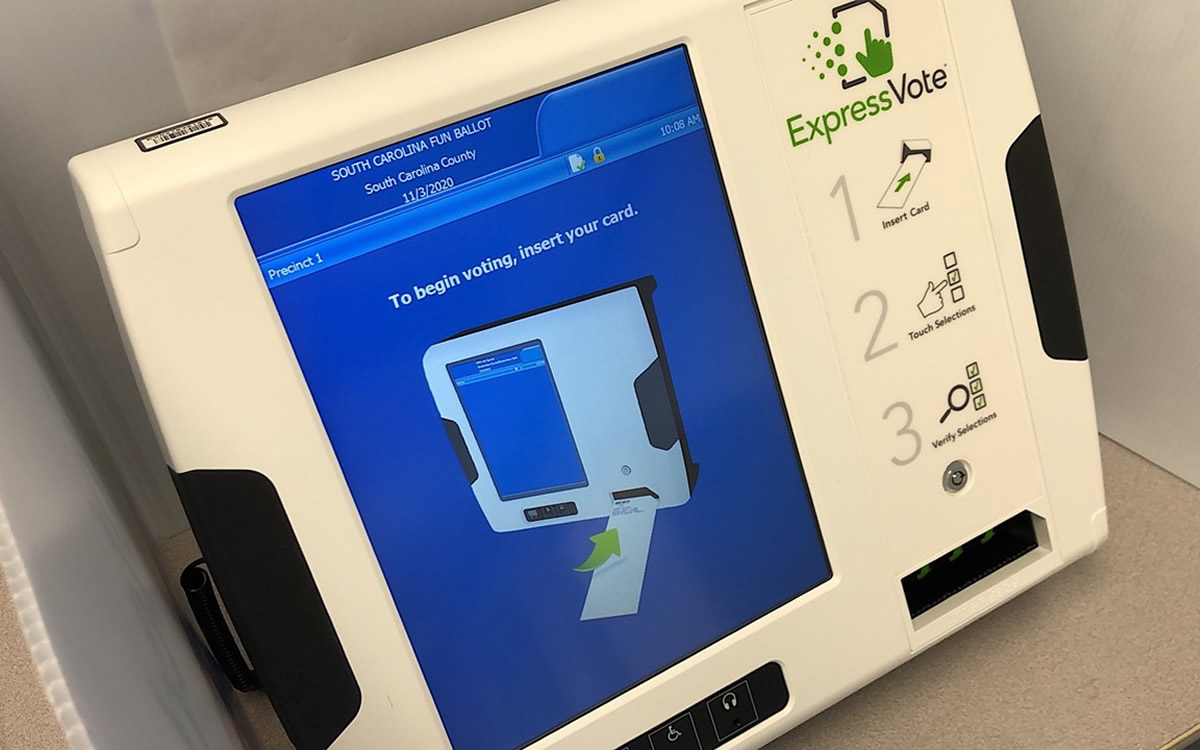
Staff reports | All South Carolina residents registered to vote in the June 9 primary can request an absentee ballot from the State Election Commission without specifying an excuse due to the ongoing state of emergency brought on by the coronavirus pandemic.
State lawmakers fast-tracked the legislation this week, passing the bill on Tuesday and earning the governor’s signature soon after.
The measure temporarily suspends the requirement to comply with one of a series of state-allowed excuses to request an absentee ballot. Sickness or a pandemic had not been among the allowed excuses. Still, the new short-term law, which expires July 1, requires a witness to sign the ballot in an effort to curb fraud.
The South Carolina Democratic Party and the American Civil Liberties Union filed lawsuits in April to force the state to expand ballot access for the 2020 elections. The exception for the June primaries does not extend to other special and rescheduled elections or the November general election.
In other news:
![]() Get your roots done. Starting next week, you’ll finally be able to do three things you haven’t done in a few weeks: A sweet cannonball at the local pool, get your brows done, and lift heavy things at the gym.
Get your roots done. Starting next week, you’ll finally be able to do three things you haven’t done in a few weeks: A sweet cannonball at the local pool, get your brows done, and lift heavy things at the gym.
Gov. Henry McMaster announced Thursday that on Monday, several close-contact facilities closed by executive order to stop the spread of COVID-19 will be allowed to reopen with guidance on how to best operate.
“With our increased capacity for testing the people of our state, it is time to responsibly and gradually get these small businesses back up and running,” McMaster said in a press release Monday.
The state rolled out expanded testing availability at mobile clinics throughout the state starting last week. Still, South Carolina remains one of the lowest-ranked states in terms of tests per capita, according to Buzzfeed News (via data from The Atlantic’s COVID Tracking Project).
Curbing vigilante justice. Charleston-area lawmakers on Tuesday introduced two bills intended to stop citizen’s arrests in South Carolina. Both bills, which face a slim chance of passage because of an abbreviated legislative year, were proposed in reaction to Ahmaud Arbery’s shooting death near Brunswick, Ga.
Arbery, a 25-year-old black man, was killed in February while out for a jog a few miles from home. Officials initially declined to prosecute two men involved in the altercation that led to Arbery’s death, citing Georgia’s citizen’s arrest laws. The men, a father and son, have since been charged with murder.
“This type of arrest could have effectively been made here,” said North Charleston Democratic Rep. Marvin Pendarvis, a sponsor of both bills (H.5492 and H.5487).
According to South Carolina Code of Laws, any person may arrest another individual if they witness a felony or larceny or have “certain information” that a felony has been committed. Such broad statutes could lead to fatal incidents similar to Arbery’s in South Carolina, Pendarvis said. s. “Law enforcement should be the only one that should be able to make any kind of arrest,” Pendarvis told the City Paper. “If you’re a citizen that wants to do that, then you need to go to the [police] academy. They could use it. There’s a shortage of police officers, so go ahead and get the training, get the certification to do that. What we don’t need is vigilante justice.” More.
Jobless claims recede; emergency extended. While about 500,000 South Carolinians have filed unemployment claims in recent weeks, they’ve been receding, falling for the fourth straight week, as the economy in the state starts to reopen. Meanwhile, some South Carolinians are waiting for unemployment benefits while housing advocates are hoping the state can dodge a wave of evictions. A state of emergency has been extended to aid in testing. But the S.C. Senate on Tuesday rebuked Gov. Henry McMaster for not getting permission from lawmakers to continue the state of emergency, according to this story.
No shackling. Lawmakers sent a bill to Gov. Henry McMaster’s desk Tuesday that would ban the shackling of pregnant or postpartum inmates at prisons and jails, The State reported.
Staff contributors included Charleston City Paper reporters Skyler Baldwin and Heath Ellison, City Paper editor Sam Spence and Statehouse Report editor Andy Brack.
- Have a comment? Send to: feedback@statehousereport.com
















 We Can Do Better, South Carolina!
We Can Do Better, South Carolina!
Pingback: Compliance Notes - Vol. 1, Issue 4 - Lexology
Pingback: Compliance Notes – Vol. 1, Issue 4 | Nossaman LLP - JDSupra